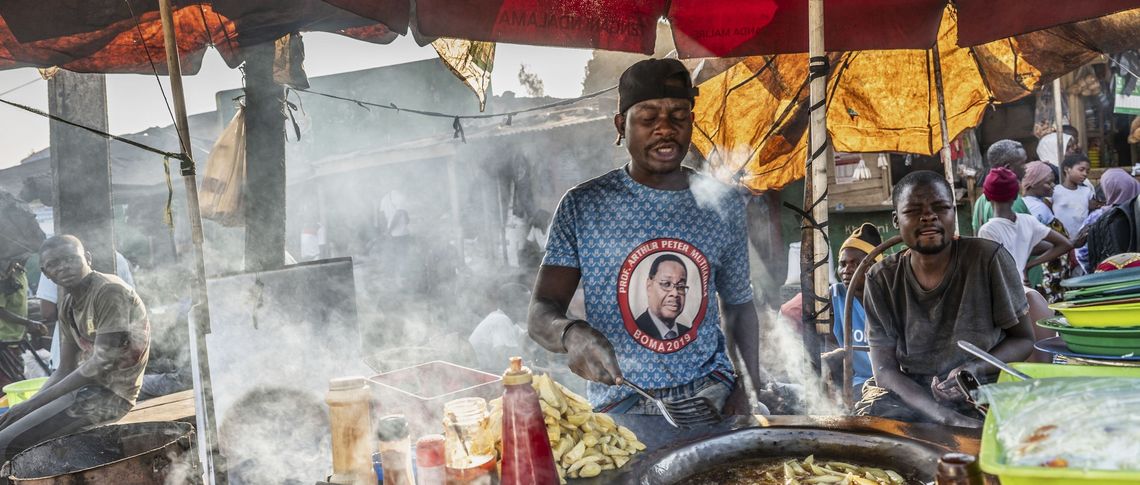Back in medieval Africa, those suspected of being witches were rounded up and banished to exorcise the village of any bad omen.
When he was declared the winner of the 2019 presidential elections, majority Malawians ganged up against then-President Peter Mutharika as if he were the proverbial witch — literally stoning his convoy as it made its way across the streets, protesting his rule for months, accusing him of being out of touch with reality, and allowing corruption, cronyism and nepotism to thrive under his watch.
When thousands took to the streets for months, decrying his re-election as the ‘Tippex election’ – due to the widespread use of the correctional fluid Tippex on illegally altered ballot papers – the military refused to shoot down the protesters. When the opposition went to the courts, the judges famously nullified the vote.
Mutharika, already in his 80s, disarmed of his charm and disempowered, relocated from the capital Lilongwe to enjoy sunsets on the beaches of Lake Malawi at his retirement villa after losing a court-ordered fresh election he had always hounded as a judicial coup. The international community christened Malawi ‘Country of the Year’; the judges and military were feted for protecting democracy.
As Malawians prepare for their next presidential election on 16 September, that feel-good story of a triumph for democracy seems to have evaporated.
For a while, Mutharika made everyone believe he was just a placeholder for the new party leader to come, but never anointed any heir. For a while, he watched his Democratic Progressive Party(DPP), founded by his highly regarded brother and family patriarch, Bingu wa Mutharika, threaten to disintegrate as potential successors jostled for power. He also watched his successor, Lazarus Chakwera, a former evangelical Christian pastor turned politician who defeated Mutharika in the historic 2020 rerun election, charm the public.
Chakwera, riding high on a post-revolution euphoria, promised the moon to a nation desperate to free itself from the traps of poverty and underdevelopment. He promised a country free from the corruption, decay, joblessness and hopelessness of the past. For the youth, there would be one million new jobs in the first term. A war on corruption would be waged relentlessly, and jails would be full of the rich and plumb, not petty criminals surviving on crumbs on the streets. He was backed by an opposition coalition that has since disintegrated, which included former President Joyce Banda and the UTM, a party then led by the charismatic former Vice President Saulos Chilima, who was killed in a plane crash last year.
But five years on, as Malawians prepare for their next presidential election on 16 September, that feel-good story of a triumph for democracy seems to have evaporated. The country faces a failing economy, characterised by rising inflation and widespread poverty. More than 70 per cent of Malawians live on less than $2.15 per day. The high cost of living has left many citizens disillusioned, while the foreign currency crisis has exacerbated a fuel crisis, with long queues at gas stations mushrooming across the country for months.
Only eight per cent of Malawians between the ages of 18 and 35 said they had a job.
Last Monday, during a late televised debate, Chakwera begged the citizenry for forgiveness but blamed the woes on sabotage by the opposition and corrupt elements within his government. All his troubles, though, could be attributed to his first act as president, when he appointed the much-criticised cabinet that contained several members whose main credentials for leadership were blood ties to powerful political figures that had backed Chakwera’s candidacy, earning him the unwanted moniker ‘Family Man’. His own son-in-law was given the visible position of Director of Communications for the presidential palace, and the presidency has never recovered, its woes exacerbated by a biting economic crisis. The war on corruption has been abandoned as it came too close to home.
Whoever wins the race to govern Malawi inherits some very fundamental headaches. The production of tobacco, the main cash crop and main source of foreign currency, has decreased, and there has been little diversification of the economy. While the official unemployment rate is low, hovering around five per cent, experts say that does not account for the high number of people in informal work. Young Malawians, who make up the bulk of voters, have been hit the hardest by employment challenges. According to a survey by Afrobarometer, only eight per cent of Malawians between the ages of 18 and 35 said they had a job. Many skilled youth are voting with their feet, emigrating mostly to South Africa, but also to far-flung countries like Israel to work on farms abandoned by Thai nationals after the October 7 attacks.
It is the profound desperation that has made the once-banished Mutharika, now in his mid-80s, no longer be seen as a witch to be exorcised but as a potential – if unlikely – solution to a curse that has only deepened since he left power. However, it is difficult to envisage someone deemed incompetent only five years ago as the solution the country so desperately needs now.






